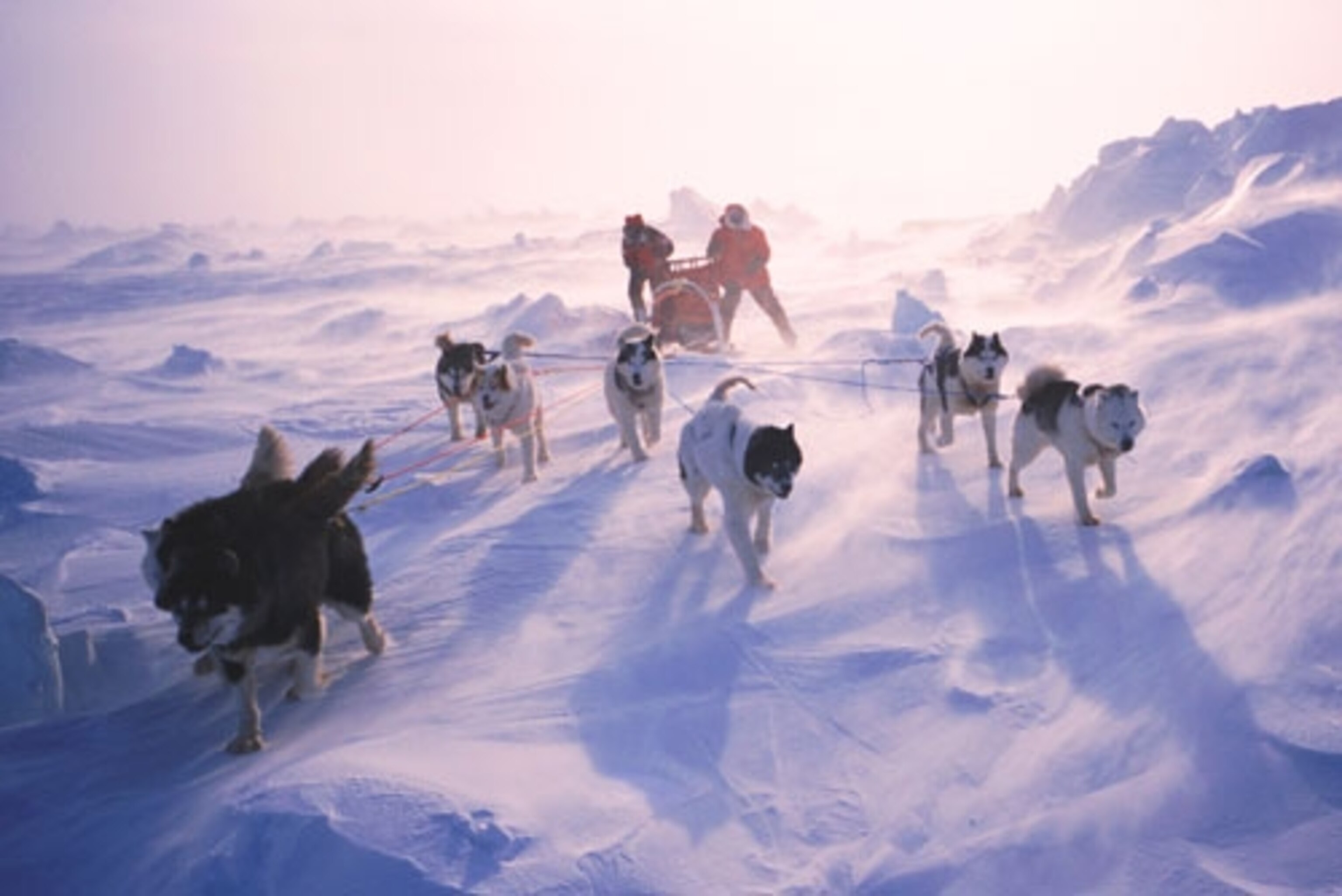
Explorer Tom Avery on Solving the North Pole’s Century-Old Controversy
On April 6, 1909, a team of
polar explorers led by Americans Robert Peary and Matthew Henson
claimed to have reached the North Pole in just 37 days. Critics found
the speed unthinkable. They cited inconsistencies in Peary’s notes and
the supposedly insurmountable challenges of navigating the Arctic Ocean
as evidence against him. The debate continued until 2005, when renowned
explorer Tom Avery, now 33, and four others, set out to debunk the rumors by
directly replicating the journey. Last week, on the anniversary of the
Peary and Henson expedition, Avery organized a ceremony at the two
explorers’ gravesites in Arlington National Cemetery. And in his new
book, To the End of the Earth, Avery details how he and his team may have finally put the century-old controversy to rest with them.
Avery’s team made base camp on Ellesmere Island in March 2005. They
proceeded to follow the same path, use the same breed and number of
dogs, and ride sleds built from the same design Peary had used 100
years ago. Despite the windchill bottoming out at negative 63 degrees
Celsius and a host of other obstacles, the team made it. And not only
did they reach the North Pole in 37 days, they made it there roughly
five hours faster than Peary and Henson’s time, thus marking the
fastest surface journey to the North Pole, according to the Guinness
Book of World Records. Although it may never be proven for certain
whether or not Peary had reached the pole, Avery and his team’s
near-identical sojourn had successfully attested to its possibility.
This is exactly what Avery and his team had set out to do. It’s no
coincidence that the book—like the expedition four years ago—was
released in the same month as Peary and Henson’s journey. For Avery,
the expedition had been about more than books and world records all
along. “If we’ve helped to get people talking about Peary and Henson
again, and if the world now sees their achievements in a more positive
light than they did before our expedition, then I’d be content,” Avery
says. “That’s all I really want.”
- National Geographic Expeditions
